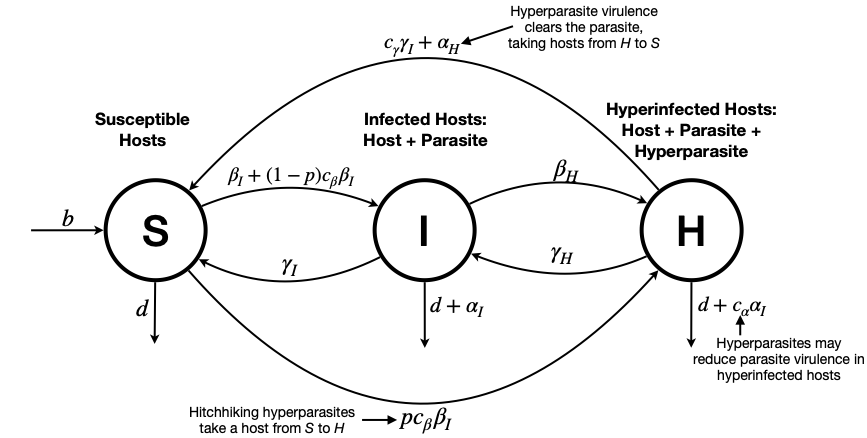
Modeling of Infectious Disease Dynamics
My research centers on the use of mathematics to understand how infectious diseases spread through a population, and how the population may change as this happens. This can be done in many ways, with different tools to suit different jobs.
Epidemiology
Infectious disease epidemiology represents a set of tools for investigating who gets diseases, why they may get them, and what sorts of interventions can be used to mitigate their burdens on populations. I am especially interested in the epidemiology of recurrent infection processes and imperfect acquired immunity. I have published work to improve the statistical estimation tools we can use to make use of data from these systems and show how these estimates are important for management of pathogens.

Evolution of Infectious Disease
I am keenly interested in developing general theory for ecology and evolution of infectious diseases. Having been introduced to the methods of adaptive dynamics and oligomorphic dynamics during graduate school, I have applied these methods to model infectious disease evolution in community contexts. In particular, I am becoming more interested in systems with multiple pathogens or multiple strains emerging in antigenic space.
Collaborations
Science is at its best when people with different expertise and interests can join forces, as I have experienced on a number of projects. Working with collaborators in Cambodia, England, Canada, and at various institutions across the US has strengthened my own understanding of the scientific landscape and taught me new skills along the way. If you are interested in collaborating, always feel free to contact me! My research interests are continually evolving (pardon the pun), so I look forward to seeing how my current projects develop into future ones and how our interests can generate new ideas.